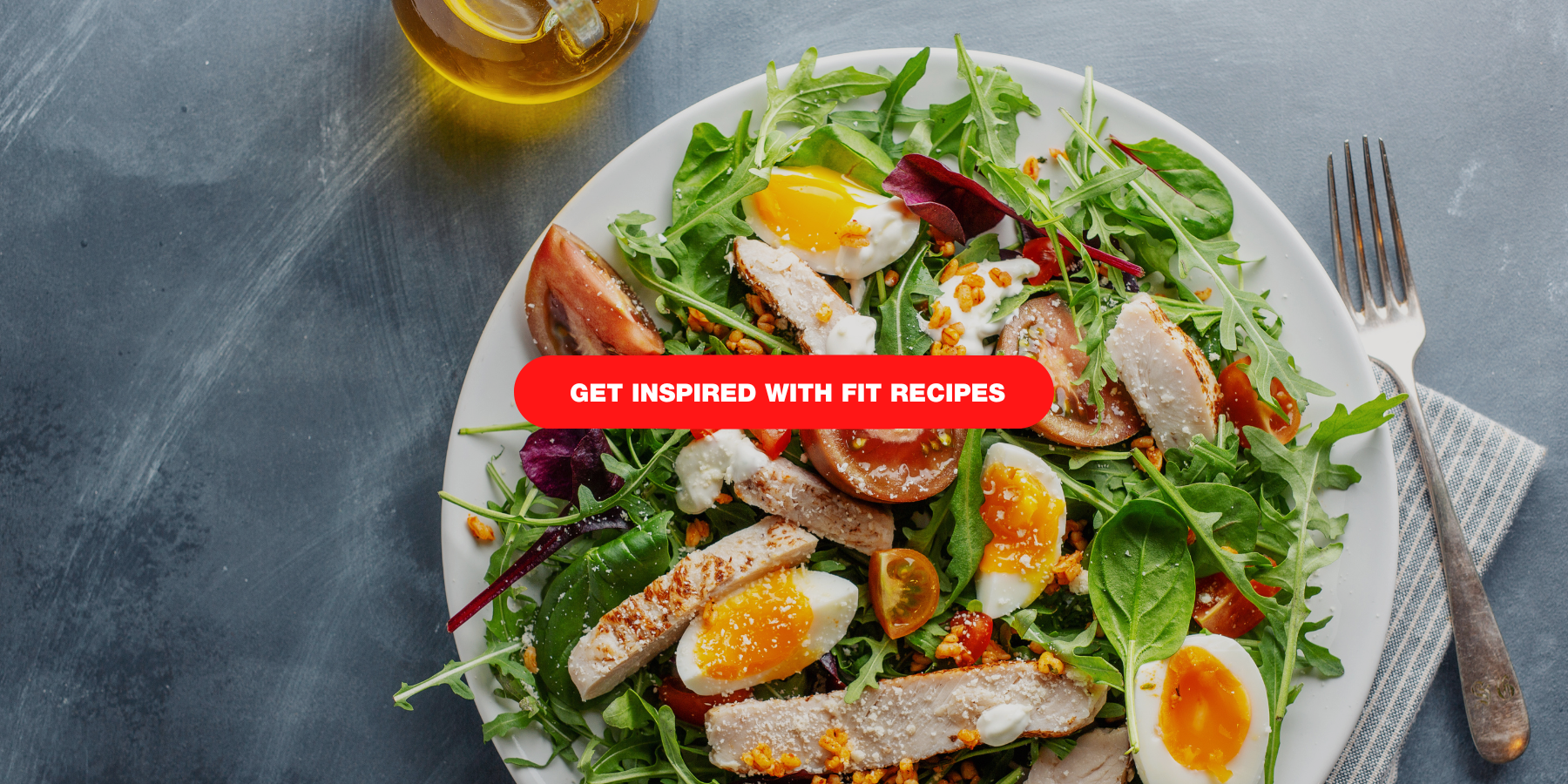In our January challenge, we focused on two main goals improving your condition or increasing your strength. We know that your goal can be a bit more specific. Maybe you want to strengthen your body, run a marathon in the summer, lift more weight, maybe you want to lose a few kilos or vice versa, gain a few kilos. Thanks to Martina Procházková, a successful bikini fitness expert, come and learn the simple rules by which you can set the right diet and learn basic terms in the field of nutrition. First, let’s talk about other factors that can affect the achievement of your goal.
1. Sedentary / standing work
We probably won’t fool you with the fact that sedentary work or, on the contrary, work during which you stand for a long time, bring with them many health risks that worsen the quality of life. The most common problem is lower back pain or a blocked back. It will sound simple, but often only a small change is enough – to move more during working hours. You can walk around the workplace, do some simple exercises, climb the stairs a few times. Regular exercise will contribute to a significant change.
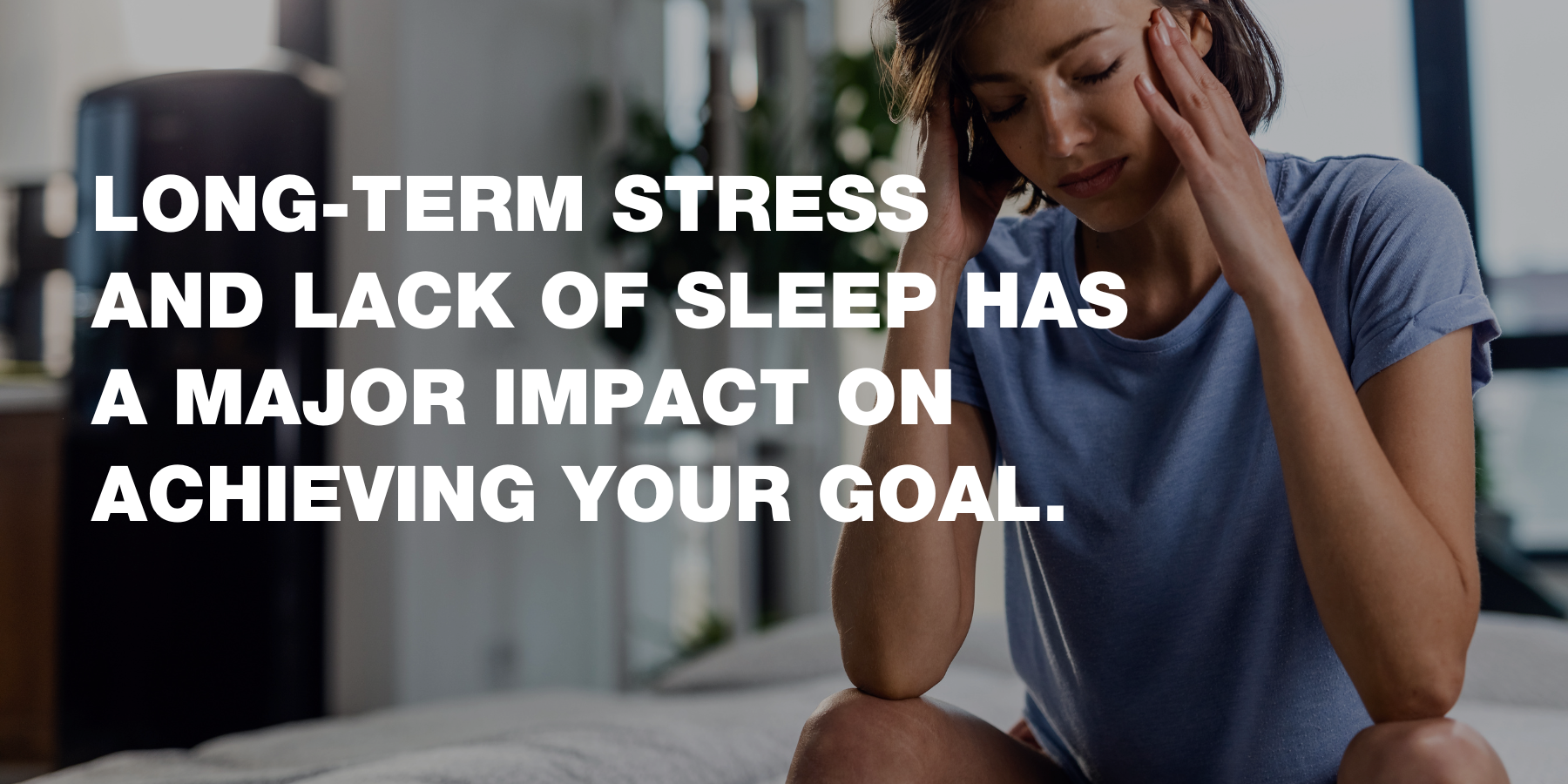
2. Long-term stress
Stress affects our overall balance – both physical and mental. Stress is natural and important for the proper functioning of our body. It serves as an “alarm” for our brain, which activates hormonal and nervous reactions. The adrenal glands start to release primarily the hormones cortisol and adrenaline. Adrenaline speeds up your pulse, increases blood pressure and activates the body to action. Cortisol raises your blood sugar level and supports the body’s overall ability to respond to a stressful situation.
However, the problem arises if the stress is long-term. Then the cortisol level remains high and disrupts many natural processes in the body. This can cause problems such as depression, heart disease, headaches, disturbed digestion, sleep problems, excess weight. Many people deal with stress by overeating, or on the contrary, they can’t even think about food, which affects their mental and physical side and is reflected in their lifestyle.
3. Lack of sleep
Sleep is the silencing of our consciousness and body. It is very important for regeneration, it has an effect on our memory, performance, body composition and the level of our hormones. For example, with enough sleep during weight loss, the weight goes down mainly from adipose tissue, while with a shortened length of sleep, we lose weight mainly from muscle mass and only minimally from fat.
Lack of sleep also increases the risk of developing many diseases, especially heart attack, stroke, diabetes, but also Alzheimer’s disease. Long-term lack of sleep leads to higher blood pressure and is involved in a higher risk of cancer.
4. Bad diet
Surely you also know many people who, even nowadays, think that if they want to lose weight, they must follow strict diets, prescribe various detoxes and not eat after 6:00 p.m. evening. With such diets and detoxes, we have to expect that we will lose mainly water, a small amount of fat and also muscle mass. Sooner or later, the so-called “yo-yo effect”, i.e. regaining all the lost kilograms even with some extra weight as a bonus. In addition, the body will gradually start to store supplies in case a similar situation should happen again, and the weight loss will get worse and worse.
The first three points have a big impact on achieving the goal you set for yourself. They are related to your overall lifestyle, your physical health, and are also reflected in your mental state, which is key to maintaining your motivation while fulfilling your dreams and goals. Think about it and try to adjust your daily routine in such a way as to eliminate their negative impact. The fourth point is one of the most important factors for achieving the fitness goals you set with us. Not to mention that it is the basis of a healthy lifestyle that will keep you vital, young and satisfied for longer. How to adjust your diet according to the goal you are aiming for, what basic concepts are important for understanding what you eat and how what you eat affects your life. We will discuss all this in the continuation of the article.
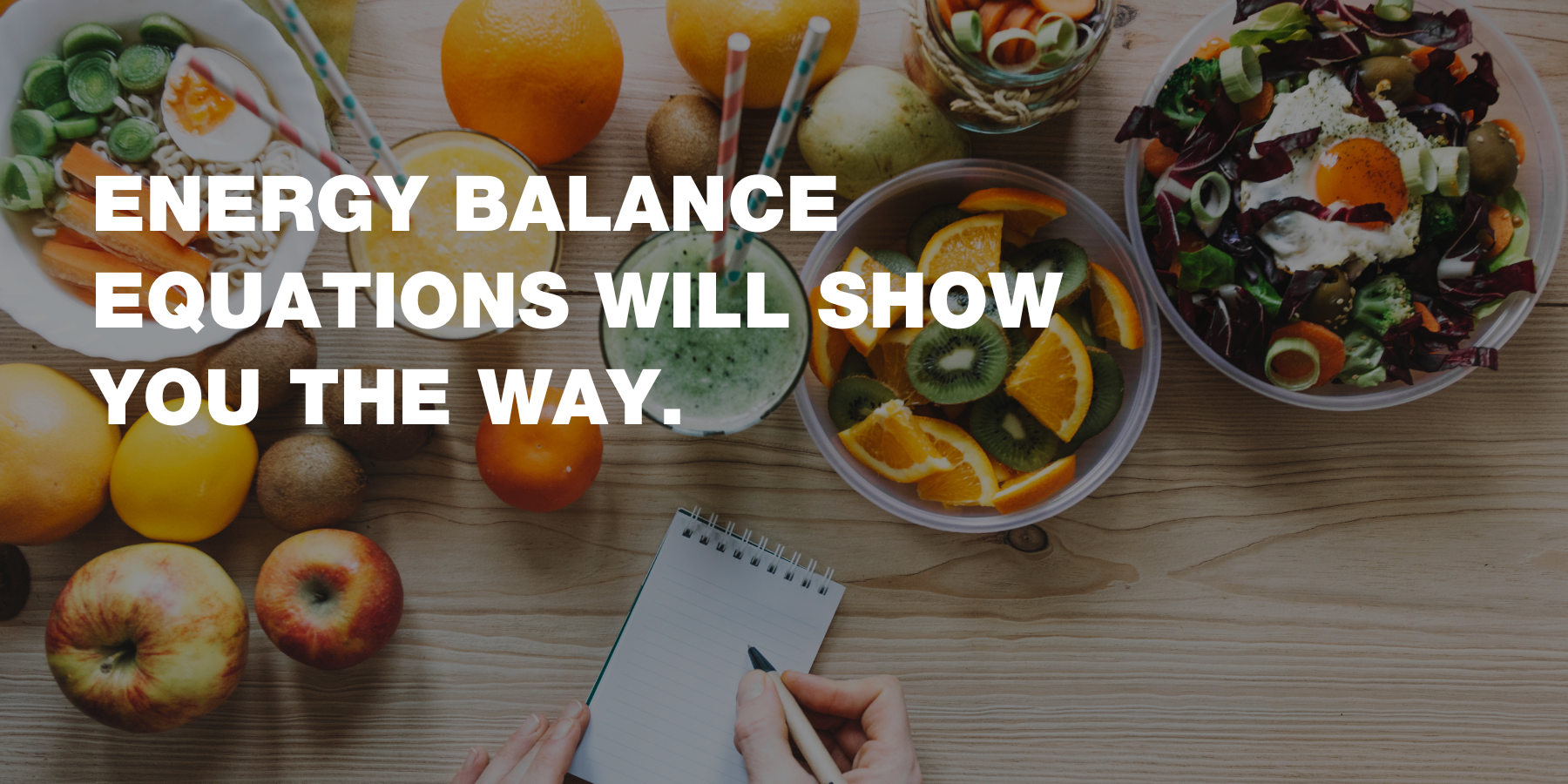
Energy balance is a very simple but important concept – it is the ratio between energy intake and expenditure. Let’s look at its two sides more specifically. In the daily income, we count everything that we eat during the day, not only food, but also sugary drinks, etc. Simply everything we put in our mouths in a day. On the contrary, all calories (all energy) that your body burns during the day are counted in the energy expenditure. But the expenditure is somewhat more complicated, because we also spend energy on activities that our body does without giving it a conscious instruction:
Basal metabolism
Basal metabolism is the energy that your body spends per day for its functioning. Without doing any extra activity. It is (to put it very bluntly) the energy you burn in a day, even if you just lie down and don’t move all day. It is the energy spent on breathing, pumping the heart, etc., i.e. energy spent on all processes in your body.
Normal daily activities
Among normal daily activities, we include those activities that you do during the day to function – at work, at home, etc. It is, for example, walking to work, cleaning, cooking, showering, walking on a level or up stairs.
Extra output
As the name suggests, extra spending is the extra activities we do during the day. For example, training or more difficult physical activity – in the gym, during group sports, when running, riding a bicycle or skating, etc.
Food digestion and thermoregulation
And finally, we consider the digestion of food itself as an expenditure of energy. As well as the thermoregulation of our body – especially during physical activity, during which our body temperature naturally rises.
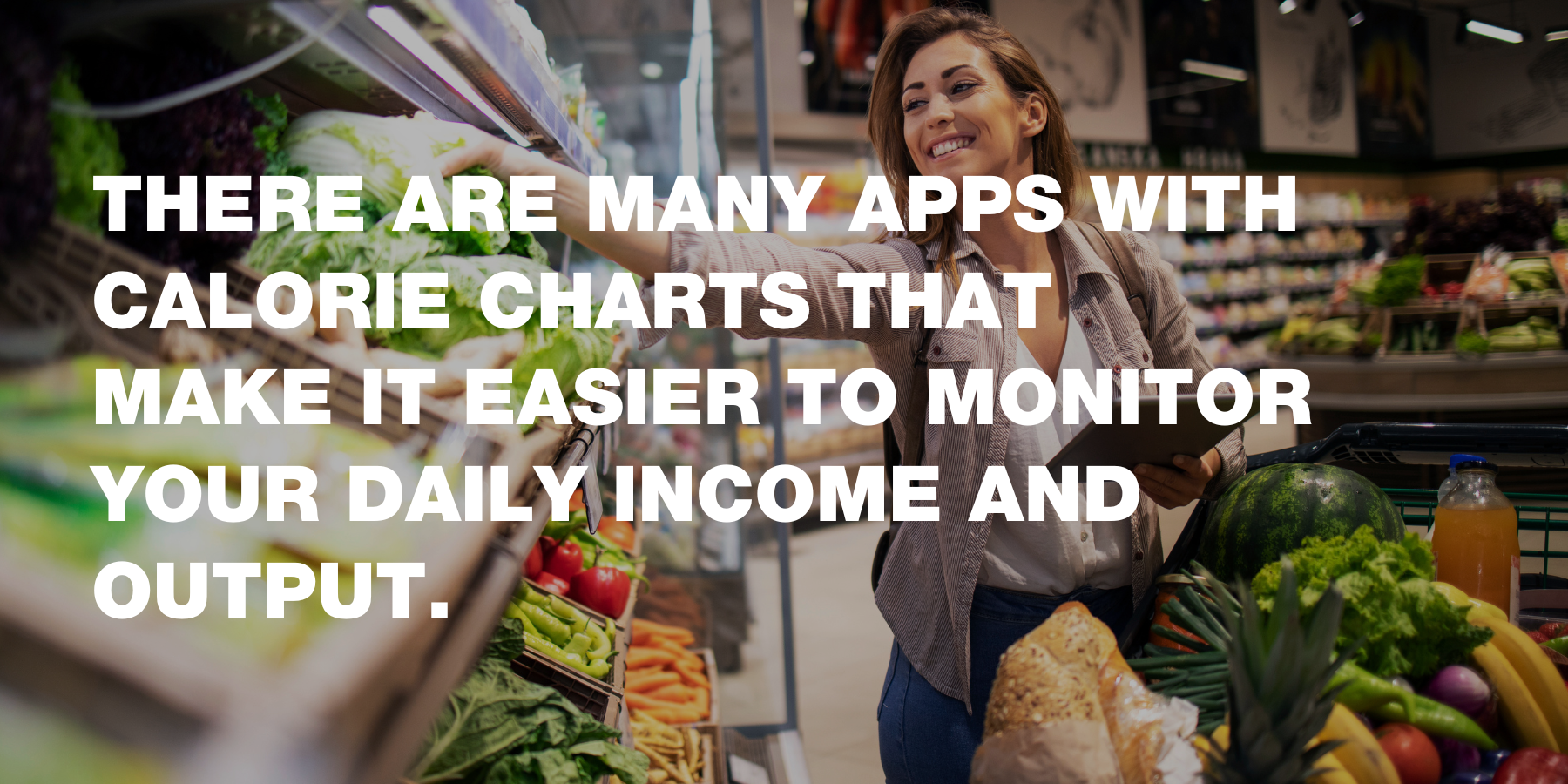
Now you know more precisely what the energy balance is and what is on both sides of this ratio. Imagine your goal once more and you will set the basis of the path to it by correctly substituting the income – expenditure equation. To better understand how it works, take a look at these simple examples:
WEIGHT GAIN: daily intake > daily expenditure
MAINTAINING WEIGHT: daily intake = daily expenditure
WEIGHT LOSS: daily intake < daily expenditure
In order to monitor your daily energy balance, you can write down your activities and monitor calorie tables. Various applications with calorie tables that you can download to your mobile phone are a great helper. You will be able to set your daily income and monitor what you eat, write down training sessions and other activities that fall under extra spending. Tracking the received energy is all the easier because you can directly choose from a list of foods with already set caloric values, or some applications can break down the given food into proteins, carbohydrates and fats. The best part is that after a while you will learn to monitor your income automatically without the help of an application or other tables.
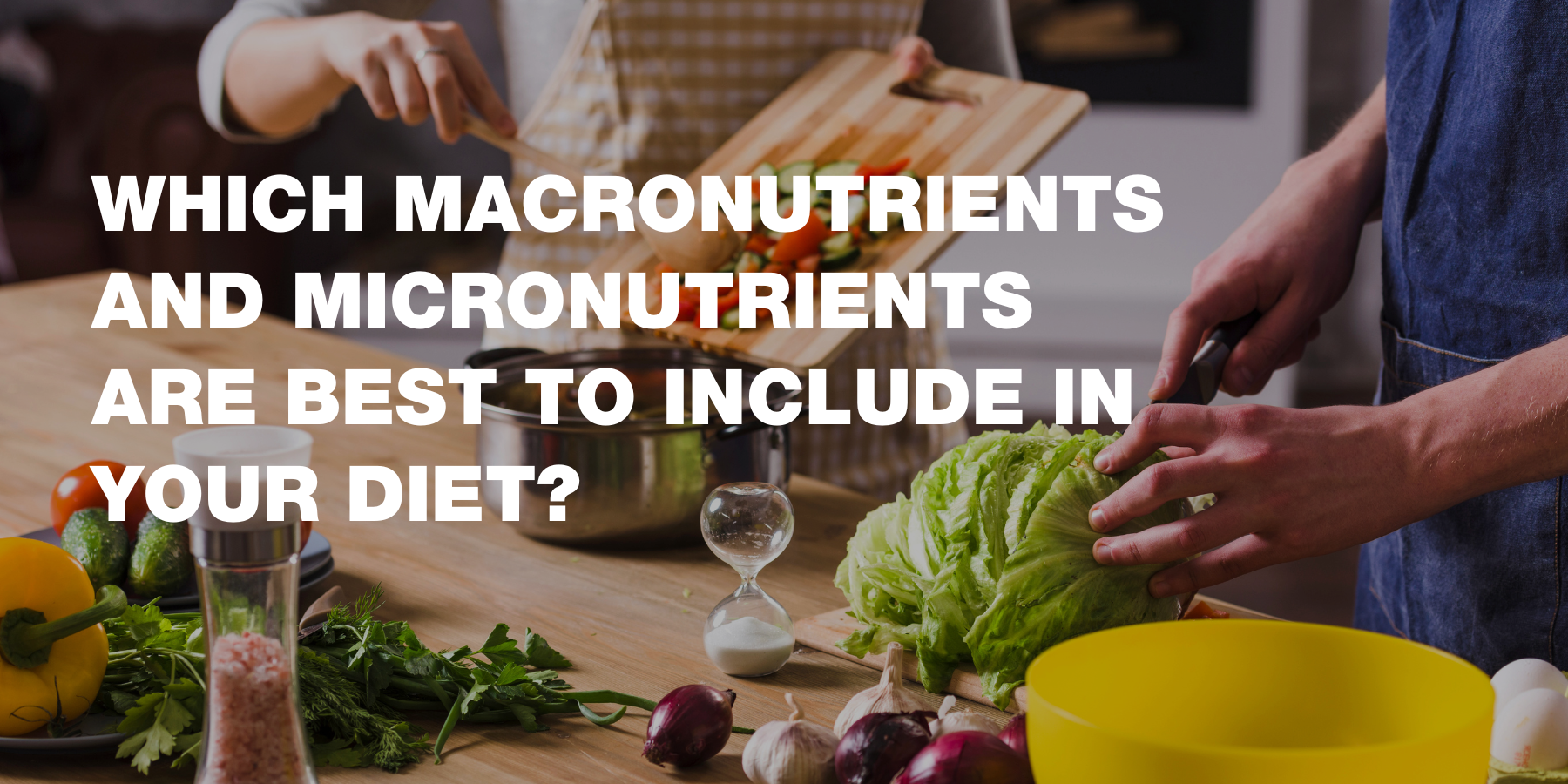
In order to be able to plan your diet so that it is balanced and healthy, you need to master the basic composition of food. You must have already heard that food is made up of macronutrients and micronutrients, one of the differences between them is already evident from their names. While our body needs macronutrients in larger quantities and we get energy from them in the form of calories important for our metabolism. micronutrients are sufficient for him in smaller amounts and their intake is necessary to maintain good health.
MACRONUTRIENTS
Proteins
Proteins are composed of amino acids and are the basic building blocks of all living organisms. Their energy value is 4.1 kcal per 1 gram of protein and they have a high satiety effect. Amino acids obtained by their digestion serve the body as a source for the creation of its own proteins. In the human body, we have 21 different amino acids, which are divided into essential – the body cannot create them and therefore it is necessary to take them from food, and non-essential – the body can create them itself. Getting enough protein is very important because it helps build and maintain muscle mass.
- Sources of animal proteins: meat, eggs (white), dairy products (cottage cheese, yogurt, cheese, kefir…)
- Sources of vegetable proteins: legumes, nuts and seeds
Carbohydrates
Carbohydrates are primarily a quick source of energy for our body. Received carbohydrates are broken down in the body and subsequently used as an immediate source of energy for the body or as an energy reserve in the form of glycogen (liver and muscle). If you take them in excess, your body will turn them into fat. Their energy value is the same as that of proteins, 4.1 kcal. Carbohydrates are divided into simple carbohydrates (sugars), which serve to replenish energy really quickly. After taking them, hunger comes quickly. Complex – complex carbohydrates have a longer sugar chain, they also represent a quick source of energy, but they keep us full for a little longer.
- Sources of simple sugars: fruits, jams, honey, chocolate, biscuits, sweets
- Sources of complex sugars: bread, rice, potatoes, oatmeal, whole grain pasta, legumes
Fats
Fat or lipids are compounds of glycerol and fatty acids. For our body, they represent the largest storehouse of energy, which is more than double that of carbohydrates and proteins – their energy value is 9.3 kcal. At the same time, they also have the advantage of satiating us, so we delay the feeling of hunger after eating them. In addition, they have a building, insulating function in our body and play an important role in the formation of some hormones as well as in the regulation of testosterone.
- Source of fats: nuts, seeds, vegetable oils, marine fish, avocado, coconut, egg yolk
MICRONUTRIENTS
Micronutrients are essential for the human body. Vitamins and minerals are involved in many functions of the human body. Humans cannot create micronutrients on their own, so we take them in food or in food supplements. If your diet is varied enough, you don’t have to worry about getting enough vitamins and minerals.
- Sources of micronutrients: fruits (lemon, orange, tangerines, kiwi, blueberries, strawberries, bananas, apples…), vegetables (pepper, tomato, carrot, beetroot, broccoli, cucumber, garlic, onion…)
If you also decide on dietary supplements, choose first of all:
- Vitamins: C, D3, Omega 3, 6, 9, E
- Mineral substances: magnesium, zinc, calcium, iron, selenium
Now it’s time to think about everything you’ve read above. What is your current diet? Do you need to make big changes or have you just confirmed that you are eating healthy and balanced? Is your diet set correctly in relation to the goal you have set? You have all the basic information to know how to create a healthy and tasty meal yourself, and thus take the first step towards your better and stronger self. But more important is the mindset, staying positive and knowing why you want to make a change and looking forward to it. We’re keeping our fingers crossed for you.


































